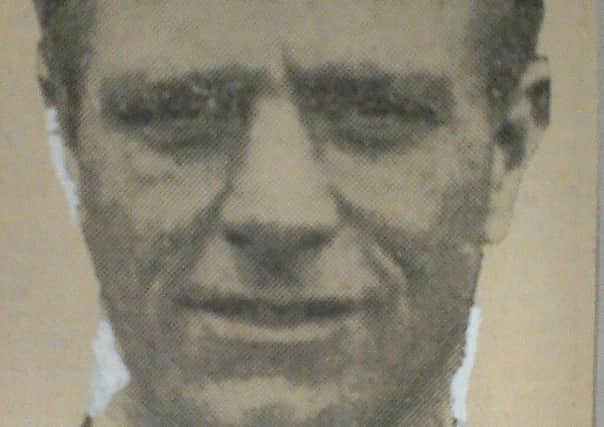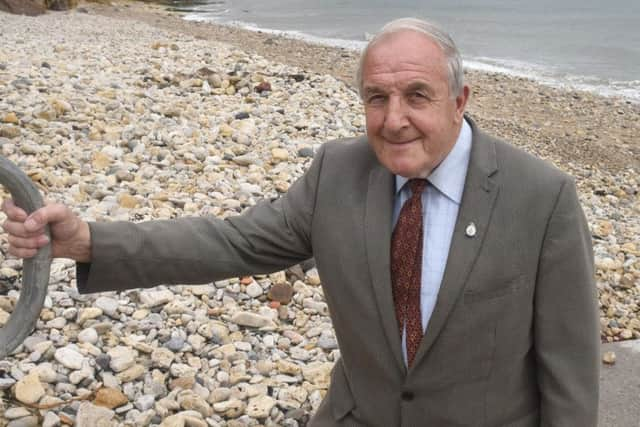Sunderland miner was shot and bayoneted but survived the Battle of the Somme


But when King and country called, Frank Orr answered. He volunteered for service in the First World War.
By the time the horrific conflict was over, the Somerset Light Infantry soldier had the scars to show from his time at The Somme.


Advertisement
Hide AdAdvertisement
Hide AdBut at least he lived to tell the tale, unlike millions of others.
Today, his son Colin shares the story of a Somme survivor.
Signing up seemed like a great idea to Frank Orr.
After all, it had to be better than spending five-and-a-half days a week down the pits where underground conditions were dark, dangerous and dusty.


Or so he thought.
On reflection, the horrors of trench warfare might have made him think again about volunteering.
It was a thought which probably came to his mind from the very first day of the Somme.
Advertisement
Hide AdAdvertisement
Hide AdFrank Orr, born in 1894 and a resident of George Street East, New Silksworth, signed up at the start of the 1914-1918 war.
He was enrolled in Prince Albert’s Somerset Light Infantry rather than the Durham Light Infantry.
His regiment was posted to the front line and Frank was injured almost as soon as the fighting started.
Colin said: “By September 1915, my dad was in combat conditions in France and it would be then that he suffered a bullet wound just above his left ankle.
Advertisement
Hide AdAdvertisement
Hide Ad“The mark it left was clearly visible and my brother Albert and I knew this as my dad’s bullet wound.
“This was to distinguish it from another mark, this time on the upper part of the left arm.”
That was the scar which was made when Frank fought at The Somme on the very first day of the battle on July 1, 1916.
The wound was made by the thrust of a German bayonet.
Colin added: “On this day, upwards of 19,000 soldiers lost their lives to stamp 1/7/16 as the blackest day in the history of the British Army.
Advertisement
Hide AdAdvertisement
Hide Ad“Earlier, his soldiering had been with the 8th Battalion of his regiment, but now it was with the 1st as they were in the thick of the action on the Serre Road and hand-to-hand fighting was under way.”
Official records show Private Frank Orr was evacuated to England on July 17, 1916, after suffering a bayonet wound to the left arm.
Colin added: “Lucky man but his war was far from over despite the two wounds.
“On recovery, he was transferred to the Shropshire Light Infantry and to a new battle zone.
Advertisement
Hide AdAdvertisement
Hide Ad“It is a little known fact that Bulgaria was on the side of the Germans in 1914-18 and we needed troops in that region to keep their Army in check.
“This was done from the Greek seapot of Salonika and it was here that my dad was to spend the rest of his time as a soldier.”
The fighting there was much less severe than in France and Belgium but more men were lost to self-inflicted wounds, depression, dysentery and malaria.
Frank Orr became a victim of the mosquitoes. When he eventually got home after the war, he was described by relatives as a very sick man.
Advertisement
Hide AdAdvertisement
Hide AdHe did get back into work at the pit but had to miss days down the mines.
Colin recalled: “As Albert and I were starting school, we occasionally came home for dinner to hear my mam say he was not at work because of an attack of malaria. Upstairs, he was sweating it out under extra blankets.”
Worse followed. In Spring 1938, he suffered a blow on his left leg and it had to be amputated. He never worked an underground shift again.
Colin added: “I ruefully tell folk that the German Army couldn’t knock off his leg but the collieries did.”
Advertisement
Hide AdAdvertisement
Hide AdFrank’s two brothers also survived the war but needed significant treatment for a leg wound.
Colin said: “Sadly, the only service medal of my dad’s still in the family is a 1914-1915 Star, given to any soldier who served on the establishment of a unit in a theatre of war.”